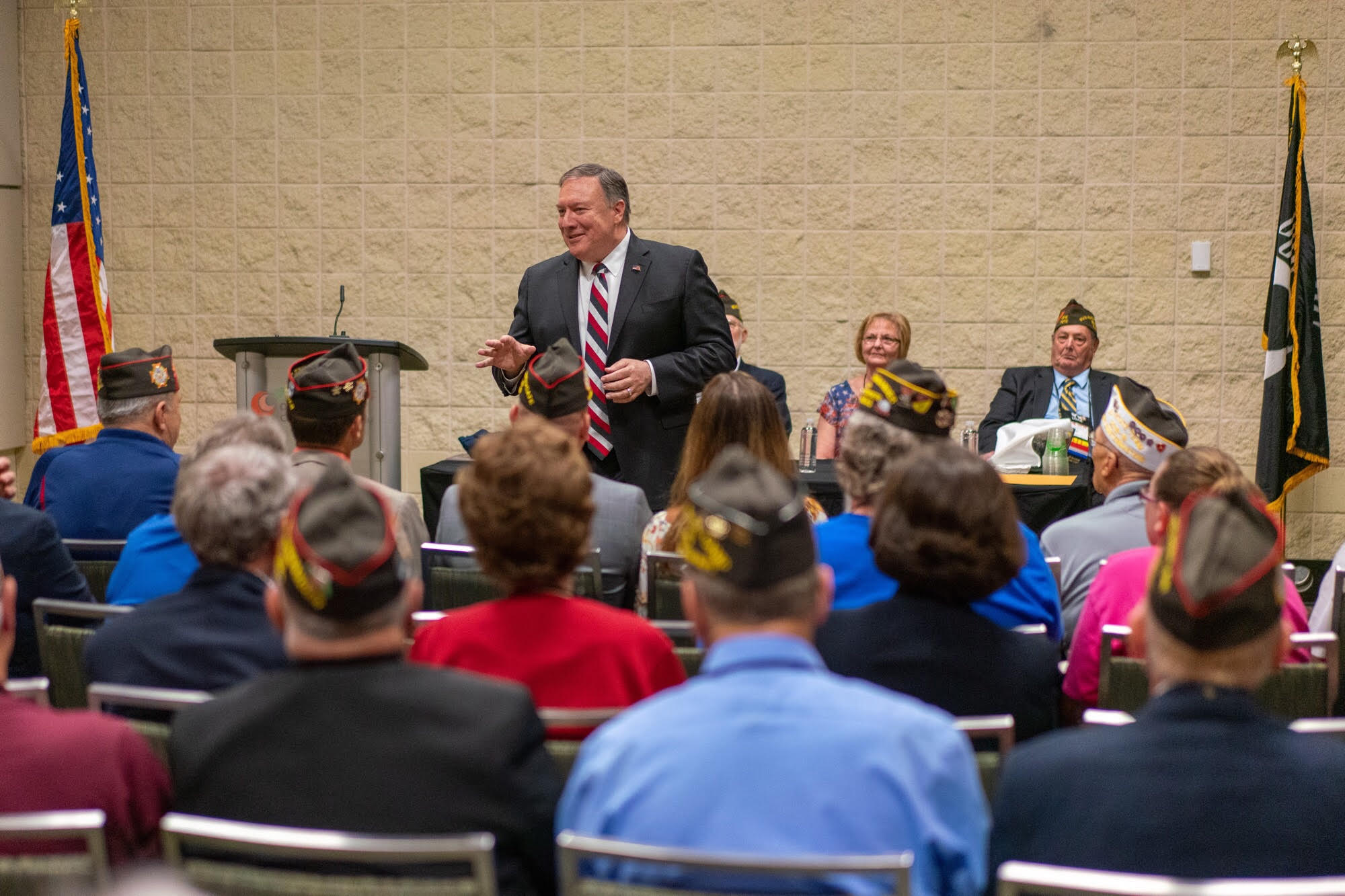News
North Korea, China top Pompeo agenda on Asia trip

FILE: Great to sit down with the #Kansas delegation to this year’s #VFWConvention in Orlando. Thank you for the work you do serving veterans, military families, and your local communities. (Photo: Secretary Pompeo/Twitter)
WASHINGTON — Secretary of State Mike Pompeo heads to Asia next week with an agenda dominated by a stalemate in the Trump administration’s nuclear talks with North Korea and impasses with China over trade, Taiwan and the South China Sea.
Pompeo travels to Thailand on Tuesday for the Association of Southeast Asian National Regional Forum where North Korea’s launch of medium-range missiles this week and increasingly assertive Chinese maritime actions will be major issues. U.S. officials declined Friday to say if Pompeo plans specific meetings on either matter in Bangkok but acknowledge they are major concerns.
North Korea has suggested it won’t attend the annual meeting, at least at the foreign minister level, as it has done in the past, according to the officials. The officials were not authorized to preview Pompeo’s trip publicly and spoke on condition of anonymity.
But, the officials would not rule out direct discussions between the two sides, noting that President Donald Trump and North Korean leader Kim Jong Un had agreed to resume negotiations at their most recent meeting at the demilitarized zone in June.
Pompeo said Thursday that he was hopeful the talks on getting North Korea to dismantle its nuclear weapons and long-range missiles — which have stalled several times since Trump and Kim’s first summit in Singapore last year — could re-start in the coming weeks.
“We’re working our way towards that, I think we’ll be able to pull that off in just a handful of weeks,” he said in an interview with Fox News. Pompeo discounted suggestions that the most recent missile launches would imperil a new round of talks.
“I think we’re still going to go sit down and have a conversation about this,” he said. “North Korea has engaged in activity before we were having diplomatic conversations far worse than this … Lots of countries posture before they come to the table.”
Trump referred to the launches as “small” and not necessarily an indication that Kim is rejecting a resumption of negotiations.
Still, there has been no visible progress on denuclearization since the June 2018 Singapore summit. Although the North has not conducted any new nuclear tests since then, numerous independent experts have reported continuing work and expansion at several North Korean missile and atomic sites citing analysis of commercial satellite imagery.
Pompeo will depart for Bangkok as a new round of U.S. trade talks with China gets underway. This also follows events in the South China Sea that that Washington and some of China’s Southeast Asian neighbours have complained are provocative.
One senior U.S. official said that recent Chinese actions, including the ramming of Filipino and Vietnamese fishing ships by Chinese naval vessels in disputed areas “fly in the face of” China’s claims to be interested in peace and security in the region.
Meanwhile, China has expressed anger over new U.S. arms sales to Taiwan and the passage this week of an American destroyer through the Strait of Taiwan. In response, Beijing again warned against foreign interference in its relationship with the island that it regards as a renegade province.
Pompeo will spend three days at the security forum in Bangkok before visiting Australia for an annual meeting of the U.
S. and Australian foreign and defence ministers. Newly sworn-in Defence Secretary Mark Esper will join him in Sydney for those talks.
On his way home, Pompeo will become the first sitting secretary of state to visit Micronesia, where he will meet leaders from several Pacific island nations that have compact associations with the United States, including Palau and the Marshall Islands.





















